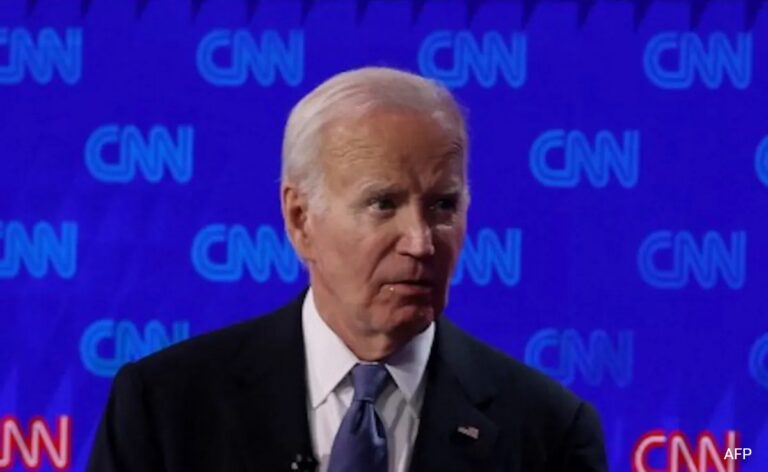U.S. President Joe Biden’s dismal performance in the presidential debate against challenger Donald Trump has renewed questions about what would happen if the veteran Democrat were to step down as party leader at the last minute.
Such a risky political pivot would be unprecedented in modern US electoral history. Here’s how replacing an 81-year-old president might be possible.
– If the candidate leaves –
To nominate an official candidate, delegates from all 50 states attend each party’s nominating convention in the summer and formally nominate a candidate based on the results of the primary election votes.
Biden won an overwhelming majority of votes in the primary elections, and about 3,900 delegates heading to the party convention in Chicago this August have pledged their loyalty to him.
If Biden leaves office, delegates would have to find a replacement, taking American politics back to the old days when party leaders made deals in smoke-filled backrooms and tried to choose a nominee through endless ballots.
On March 31, 1968, in the midst of the Vietnam War, President Lyndon Johnson made the shocking announcement that he would not seek reelection.
The move plunged that year’s convention, also held in Chicago, into a political crisis with street protests and left-wing delegates angered by the pro-war stance of the party’s nominee, Hubert Humphrey.
After this debacle, states became more accepting of the primary process, and party conventions ran more smoothly, with outcomes that were known in advance because they were decided by the primaries.
If a candidate formally nominated at a party convention must step down, the party’s official governing bodies, the Democratic National Committee or the Republican National Committee, will nominate a new candidate at a special meeting.
– Who will take his place? –
So far, Democrats have defended their nominee, at least in public appearances, with former President Barack Obama defending Biden.
Asked about the possibility of Biden resigning, campaign communications director Michael Tyler told reporters aboard Air Force One: “We haven’t had any discussion about that.”
While she would be the natural choice to succeed Biden, she is not an automatic choice: Vice President Kamala Harris is likely to be Biden’s running mate in the 2020 presidential election.
The 59-year-old, who was deployed on Thursday night to put out fires following the Democratic president’s lackluster performance, acknowledged that Biden “started off slow” in the debate but “finished strong.”
If not, other prominent Democratic politicians, including California Governor Gavin Newsom, Michigan Governor Gretchen Whitmer and Pennsylvania Governor Josh Shapiro, could be called.
Meanwhile, what about the possibility of a strong third-party candidate emerging? As of now, there are no independent candidates threatening America’s two-party system.
In 1992, Texas billionaire Ross Perot ran as an independent and won about 19 percent of the popular vote.
But in the end, the instability of America’s electoral system meant he failed to win any of the most important votes – the 538 votes of the Electoral College, which ultimately decides the winner.
(Except for the headline, this story has not been edited by NDTV staff and is published from a syndicated feed.)
Today’s Featured Video
Rains expose weaknesses in Delhi’s infrastructure

